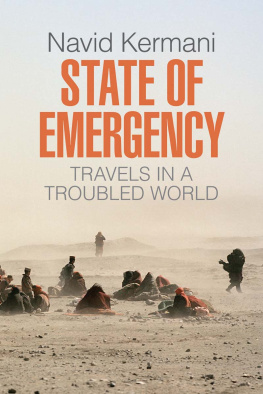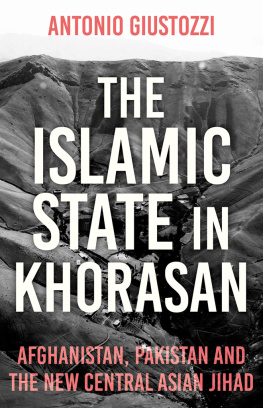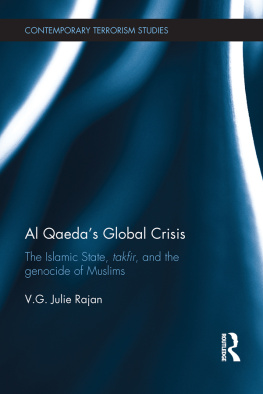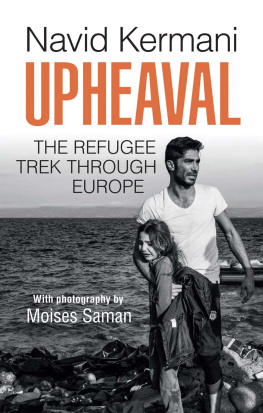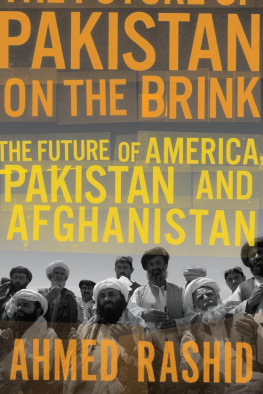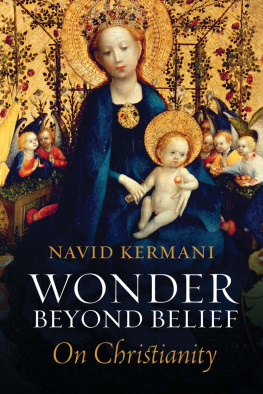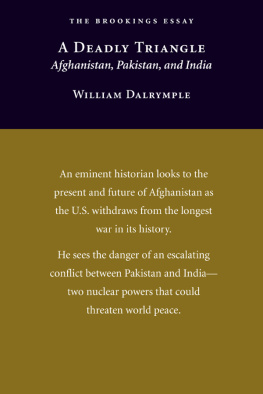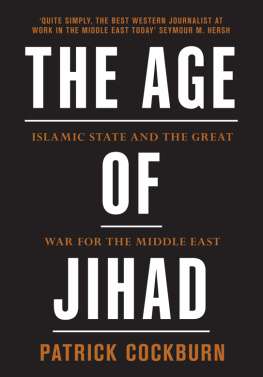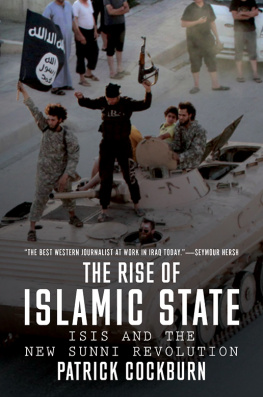Contents
Guide
Pages

STATE OF EMERGENCY
TRAVELS IN A TROUBLED WORLD
NAVID KERMANI
TRANSLATED BY TONY CRAWFORD
polity
First published in German as Ausnahmezustand: Reisen in eine beunruhigte Welt Verlag C. H. Beck oHG, Munich, 2016
This English edition Polity Press, 2018
11 maps Peter Palm, Berlin/Germany
The translation of this work was supported by a grant from the Goethe-Institut.

Polity Press
65 Bridge Street
Cambridge CB2 1UR, UK
Polity Press
101 Station Landing
Suite 300
Medford, MA 02155, USA
All rights reserved. Except for the quotation of short passages for the purpose of criticism and review, no part of this publication may be reproduced, stored in a retrieval system or transmitted, in any form or by any means, electronic, mechanical, photocopying, recording or otherwise, without the prior permission of the publisher.
ISBN-13: 978-1-5095-1474-8
A catalogue record for this book is available from the British Library.
Names: Kermani, Navid, 1967- author.
Title: State of emergency : travels in a troubled world / Navid Kermani.
Other titles: Ausnahmezustand. English
Description: Cambridge, UK : Polity Press, 2018. | Translation of: Ausnahmezustand : Reisen in eine beunruhigte Welt. | Includes bibliographical references and index.
Identifiers: LCCN 2017036533 (print) | LCCN 2017039888 (ebook) | ISBN 9781509514748 (Epub) | ISBN 9781509514700 | ISBN 9781509514700 (hardback) | ISBN 9781509514717(pbk.)
Subjects: LCSH: Kermani, Navid, 1967---Travel. | Middle East--Description and travel.
Classification: LCC DS49.7 (ebook) | LCC DS49.7 .K44513 2018 (print) | DDC 915.604--dc23
LC record available at https://lccn.loc.gov/2017036533
The publisher has used its best endeavours to ensure that the URLs for external websites referred to in this book are correct and active at the time of going to press. However, the publisher has no responsibility for the websites and can make no guarantee that a site will remain live or that the content is or will remain appropriate.
Every effort has been made to trace all copyright holders, but if any have been inadvertently overlooked the publisher will be pleased to include any necessary credits in any subsequent reprint or edition.
For further information on Polity, visit our website: politybooks.com
EDITORIAL NOTE
The reports in this book originally appeared, in much shorter versions, as newspaper and magazine articles in the Neue Zrcher Zeitung (Afghanistan I), the Sddeutsche Zeitung (Pakistan), die tageszeitung (Palestine), Der Spiegel (Iraq) and Die Zeit (all other chapters). I thank the editors and the archives of those publications, especially Die Zeit, and my editor Jan Ross, for their encouragement, support and advice. I would also like to thank the Goethe Institutes in Ramallah, Jerusalem, Karachi and Cairo, the Goethe Centre in Lahore and the Konrad Adenauer Foundation in Cairo, which invited me to give readings and lectures. All the other trips were taken on assignment for the publications named.
The travelogues written between 2006 and 2009 have become part of the novel Dein Name (published by Hanser, Munich, 2011).
I thank my editor Ulrich Nolte at C. H. Beck for his excellent collaboration over many years, most recently on this book.
CAIRO, DECEMBER 2006
The tea house where I was the youngest of the regulars, twenty years ago, has expanded but lost none of its charm. To be exact, a few more plastic chairs have been set out in the narrow alley between two sooty colonial buildings, nothing more; but, in this place, just moving some furniture is a cultural revolution. Because any natural sense of taste seems to have died out in Cairo three, four decades ago, progress mostly takes the definition Adorno gave it: preventing progress. Around one, two oclock, the tiredest whores in Cairo are sure to turn up for a last cola or a first client, while Umm Kulthum sings, as every night, of those days. The enchantment of the tea house, like that of every hostelry worthy of the name anywhere in the world, consists in the fact that nothing matches and therefore everything, as chance would have it, goes together: the furnishings and the decor, which must have been shabby already when the place opened; the cordial staff who nonetheless overcharge; the most artistic Arab orchestras from the most excruciating loudspeakers; the men regressing to little boys over card and board games; the women likewise acting as if they were still young; and, most of all, the laughter, the loud, chortling, jangling, squeaking, hoarse, malicious, self-effacing, gloating, roguish, jolly, forgiving laughter that is heard more often in Cairo than in any other city, and nowhere in Cairo more often than in the tea house in the evening, and, fortunately, still heard today, I must record, for I am always afraid until I return that the demon responsible for it all may have vanished. An entry in a travel guide could be the end of it, or a notice in the newspapers by one of the new zealots nostalgic for something that never existed prostitution is among Cairos traditions, but not puritanism. There is no way that a symphony like the tea house could be composed today. And of course it never was composed; it was simply there, already a relic on its opening day. All the guests gather and pose for a group portrait, together with the staff and the neighbourhoods shopkeepers, for a daughter eager to take a picture with her birthday present. Then the head waiter takes a picture of father and daughter that by itself is worth the twenty-year journey.
PARADISE IN A STATE OF EMERGENCY
KASHMIR , OCTOBER 2007

HOUSEBOAT 1
The Paris Photo Service, whose assortment features Kodak film, rows by. Although the sun is shining, the mountains look as if God had dipped them in milk and hung them up to dry. Next comes a shikara, as the gondolas are called in Kashmir, bringing groceries to the houseboat that was recommended to me by my local friends. And in fact it is clean and comfortable, in the British colonial style, like all of Srinagars eight hundred floating guesthouses, with heavy, dark furniture, oriental rugs, massive armchairs, although it is oriented towards Indian rather than Western tourists because it is close to the city, where Dal Lake is no wider than a river. As a result, the promised experience of silence, space and snow-covered mountains mirrored in the water turns out to be rather less than majestic. I have a view of cars and rickshaws, multi-storey office buildings of bare concrete, and a hill with a television antenna on top. The Indians seem to find the hundred yards that separate us from the noise of the traffic more than enough. But I, against my best intentions, was slightly disappointed, especially since the evenings on the veranda of the houseboat are so cold that I crawl back indoors and under my blanket to write.
Nevertheless, I am gradually discovering more and more advantages of the situation I have landed in. The boat belongs to a family with deep local roots whose thirty-two members can always find exactly what I happen to need and can supply the full spectrum of opinions, demands and desires that Srinagar has to offer, in addition to a driver, a change of travel reservations, a SIM for my mobile phone. My Indian SIM doesnt work here for security reasons. To get a new prepaid SIM, you have to have a fixed abode and the approval of the army. Now the boat owners niece will have to do without her phone for a few days. She doesnt seem to use it much anyway there are no contacts stored on her SIM except the service numbers that came with it: Astro Tel, Dial a Cab, Dua (prayers), Flori Tel, Food Tel, Horoscope, Info Tel, Movie Tel, Music Online, Odd Jobs, Ringtones, Shop OnLine, Travel Tel, Weather. For a city at war, where hardly a street lamp is lit in the evening, the offerings are stupendous. After almost twenty years in a state of emergency, Kashmir has long since grown accustomed to it.

